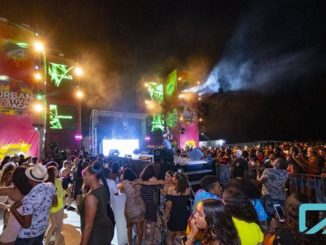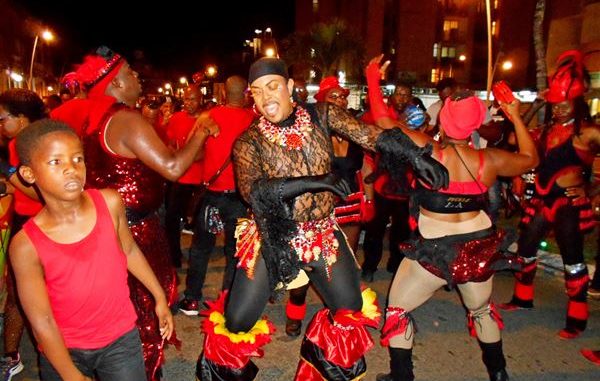
The dark shadow of Coronavirus/Covid-19 is gradually falling over the whole world. The Caribbean islands do not escape the pandemic. In addition to tourism, culture – the orange economy – is affected by this unprecedented health crisis, including the cascading cancellation of cultural events.

At the beginning, the scene of this epidemic was China, on the other side of the planet. Because of globalization, the Middle East (Iran etc.), Europe (Italy, Spain, France, Great Britain etc.), North and South America and inevitably the Caribbean which is located at the centre of these two large continents are affected by the disease.
Several Caribbean islands have reported cases of Covid-19, sometimes deaths, and the situation changes from hour to hour: St. Martin, St. Barthélemy, Dominican Republic, Montserrat, Cuba, Martinique, St. Vincent & The Grenadines, Guadeloupe, Jamaica, Antigua & Barbuda, St. Lucia, Trinidad & Tobago, Cayman Islands, Puerto Rico, Haiti etc.
As in the rest of the world, the authorities of the Caribbean islands have been forced to take more or less drastic measures to curb the spread of the virus. It started first with the premature end of the cruise ship stopovers.
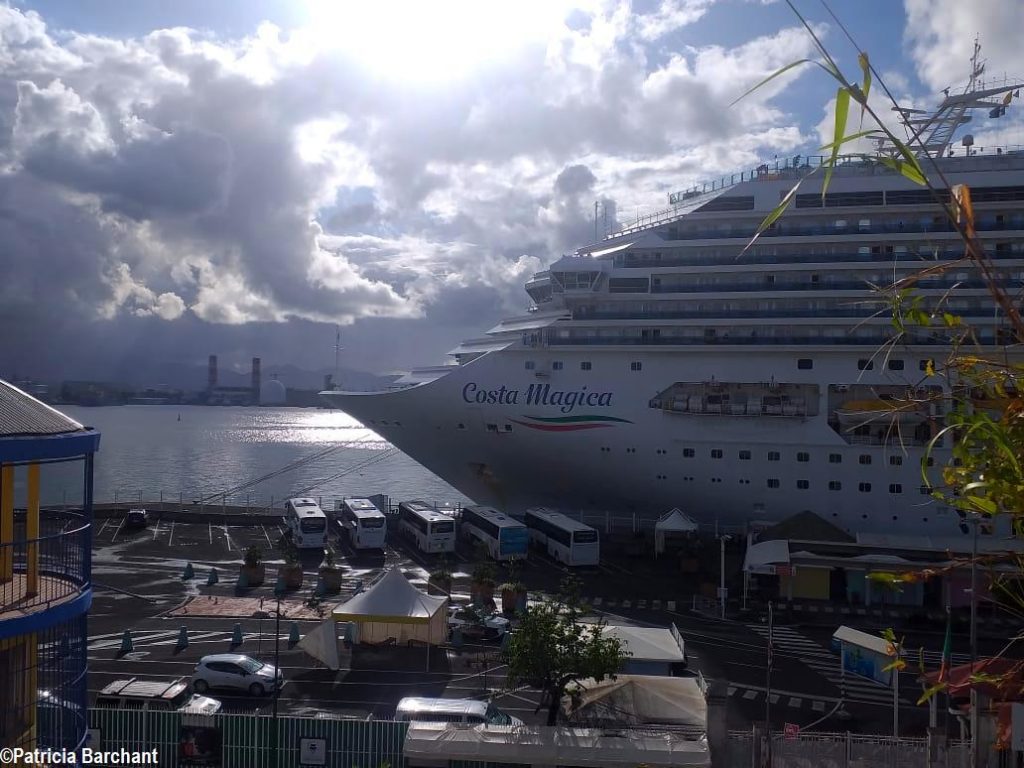
Cruise ships in distress
Many followed, for example, the misadventure of the 2 300 passengers of the Costa Magica who were turned back in several ports like Trinidad & Tobago, Grenada, St. Lucia, accepted in St. Martin then the next day declared “persona non grata” in the French-Dutch island, parked 6 km from the coast of Martinique (in the face of the demonstrators’ anger) for medical tests (that have been positive for several people including crew members) then the disembarkation of Martinican cruise passengers to finally dock at the port of Pointe-à-Pitre, on March 13, to allow the disembarkation of Guadeloupean passengers and the transport of more than 1,000 passengers (from Italy, France etc.) in buses to Pôle Caraïbe airport where they were awaited by specially chartered planes…
Several other cruise boats have experienced the same misadventure in the Caribbean due to cases of covid-19 on board. This is the case of the Costa Favolosa suffered the same fate as the Costa Magica.
In Guadeloupe, the authorities organized the return by plane of nearly 5,000 cruise passengers to their country; the last passengers of the Costa Favolosa were Argentinians who had to return home this Thursday morning. They will finally leave the Costa Favolosa and the Port of Pointe-à-Pitre this Friday, March 20 at 6:30 am, by bus to the Pôle Caraïbe airport.

Premature end of the cruise season
This also has been the case for the Braemar of Fred Olsen Cruise Lines, which was first able to stop in Curacao on March 10 for screening tests without disembarking passengers in Willemstad. The ship was then refused entry to Barbados and then to the Bahamas. The 682 British passengers, including many elderly people, who went on a 14-day cruise (from February 27 to March 12) are off the coast of the Bahamas, the British government has not yet agreed to allow Cuba to help them…
Throughout the Caribbean, the cruise season has been stopped abruptly for companies faced with the refusal of almost all of the islands to welcome their passengers. Moreover, the Cruise Lines International Association that groups together several companies has announced, on March 14, the suspension of cruises for 30 to 60 days.
Regarding air traffic, in the Caribbean islands, you must “have proper authorization” before landing. Countries like China, Italy, Iran, South Korea, France, Spain, Germany, the United States are considered high-risk countries.
France has announced the gradual reduction of long-distance transport (bus, train and plane), which will obviously have repercussions in the French Caribbean islands.

A health war waged by France
“We are at war”, this sentence was repeated several times by Emmanuel Macron this Monday, March 16 to ask the population in France and in the French overseas territories (so, in the French Caribbean) to “stay at home”, for at least 14 days from Tuesday, March 17 at noon. Residents will be allowed to go out for useful things (shopping, for example) by showing law enforcement a certificate from the Ministry of Interior.
This “extreme” decision by the President of the French Republic is due to the non-respect by some people of the ban on gatherings requested in his previous televised address on Thursday, March 12. Emmanuel Macron had announced the closure of all nurseries, schools and universities from Monday, March 16. However St. Martin and St. Barthélemy first had obtained from the Prefecture of Guadeloupe that their schools stay open… we wondered why?
On Saturday, March 14, the French Government had moved to another phase in this fight against this global epidemic by prohibiting on all French territories (including in the French Caribbean islands), masses, baptisms, weddings; only funerals would take place but with less than 100 people. In addition, concert halls, cinemas, nightclubs, restaurants, bars, cafes as well as all shops which are “not essential to the life of the Nation” must remain closed as of Monday, March 16. Yesterday (Tuesday, March 17), there were in France 7,730 cases of covid-19 and 175 deaths.
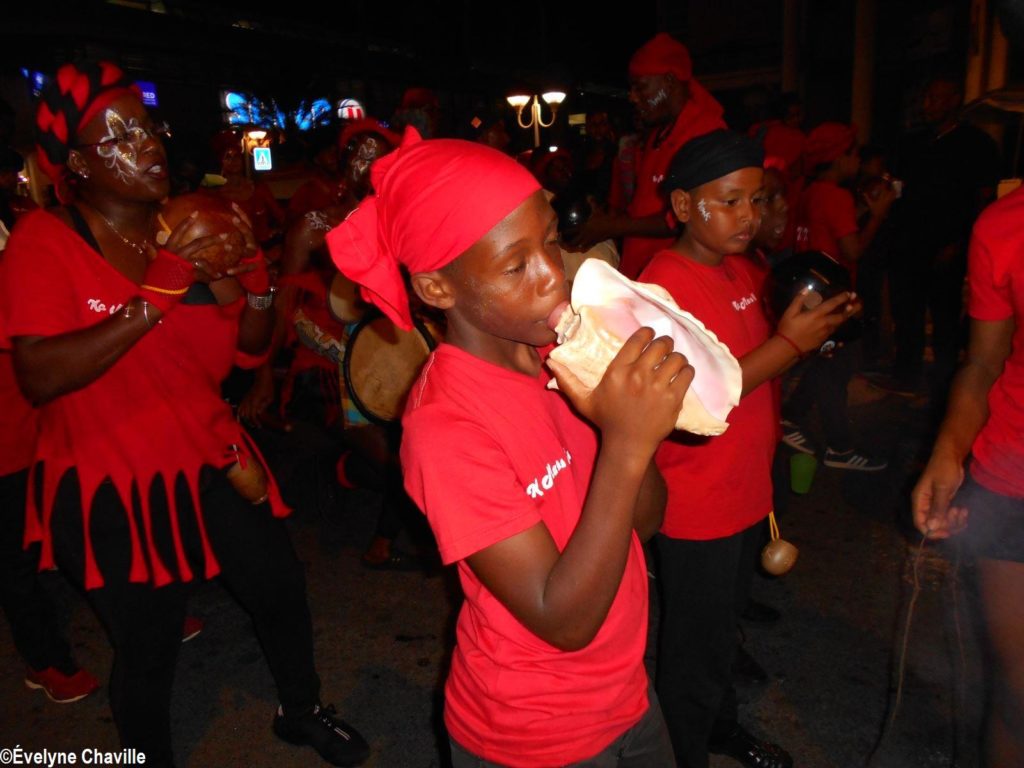
A spate of cancellations of cultural events
Guadeloupe, Martinique, St. Martin and St. Barthélemy are affected by all these national precautionary measures, especially when we learned that unaware or “sloppy” Martinican and Guadeloupean cruise passengers instead of staying confined to their homes for 14 days, were walking in the streets, shopping centers and other public places at the risk of contaminating those around them if they are carrying the Covid-19 virus. It has even been reported that a Martinican cruise passenger had contaminated his mother who died…
In the Caribbean islands, many cultural events have been canceled and postponed.
In St Martin/Sint Maarten, the SXM Festival which had started on March 11 announced the cancellation of its last day scheduled for March 15 in a certain confusion which did not please some festival-goers.
In Guadeloupe, the Carnival parade in red and black on Thursday of Mi-Carême which was to take place on March 19 – a specificity in the Caribbean – has been cancelled.
All activities planned as part of the 22nd edition of the Printemps des Poètes organized by the French Ministry of Culture from March 7 to 23 are therefore cancelled in Guadeloupe, Martinique, St. Martin and St. Barthélemy.

Reinventing culture
The island of Montserrat has also closed its schools and banned gatherings of more than 50 people until April 3. The rich program of the St. Patrick’s Festival, organized from March 6 to 18, has been drained of almost all of its activities, including the St. Patrick’s Day Parade scheduled for March 17.
The very popular Circo Fest scheduled to take place in San Juan, Puerto Rico, from March 14 to 22 has been cancelled. The public’s disappointment was great, but the organizers used their imagination by offering the show online. “Unfortunately, the 7th edition of the Circo Fest Festival was cancelled for safety reasons. As an alternative, we did a live program on Saturday March 14 and Sunday March 15 at 5:00 pm. Yesterday (Saturday 14) we had 90,000 fans around the world. We continue to reinvent ourselves”, they told us. Puerto Rico, a Free Associated State to the United States that took measures against the spread of the virus – including the cancellation of all air flights from Europe – is showing its solidarity in this fight. The annual coffee and chocolate Festival – Coffee & Chocolate Expo – scheduled for March 28 and 29 at the Convention Center in San Juan is also canceled and postponed to a later date.
In the British Virgin Islands, the 53rd edition of the Virgin Gorda Easter Festival which was to take place from April 11 to 12 has been cancelled.
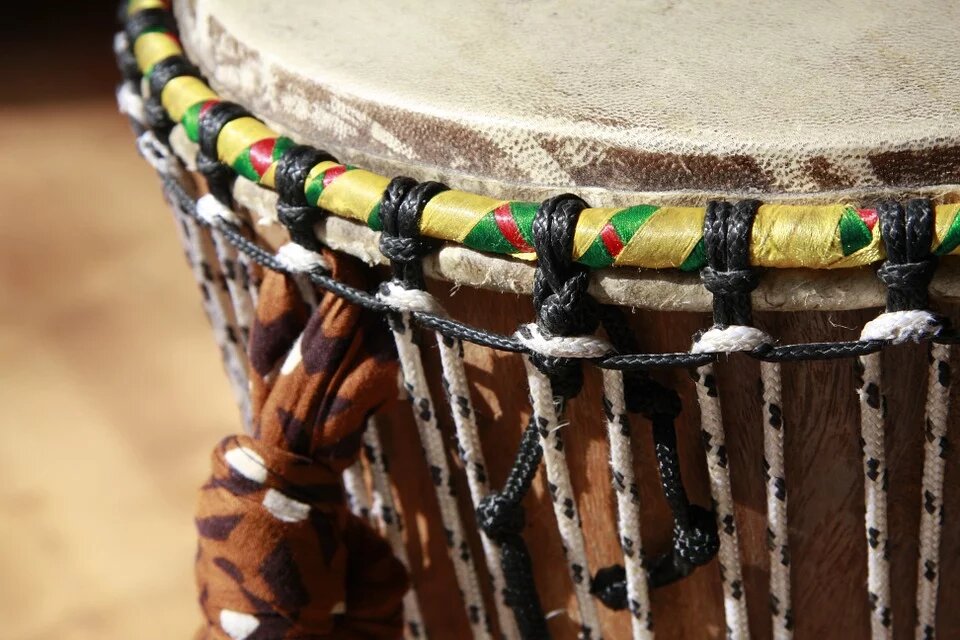
Repercussions on the Caribbean economy
In Trinidad and Tobago, the Phagwa-Holi Festival (or the Indian colour festival) scheduled for March 15 has been canceled.
In Jamaica, the 38th edition of the International Reggae and World Music Awards (IRAWMA) will be held in Kingston on March 29, but the best artists of the year 2019 will be revealed without public audience for the first time; it will be a live award ceremony on television, radio and YouTube. In addition, the Jamaica Frenzy, this House Music festival, planned for Negril from March 31 to April 5, is postponed to 2021.
In St. Lucia, the Covid-19 led to the closure of educational institutions and the cancellation of the St. Lucia Jazz 2020 (May 7 to 9) and the Gros Islet Friday Night Street Party.
Cuba has also canceled all of the shows and cultural events including the Festival de la Narración Oral “Primavera de Cuentos” planned between March 17 and 23 and the 18th edition of the Fiesta del Tambor Guillermo Barreto in Memoriam scheduled from March 23 to 29.
There were however some exceptions for the month of March like the 29th Annual Moonplash Music Festival, organized by reggae star Bankie Banx, which was held from March 12 to 15 in Anguilla.
Depending on the level of the pandemic, other events will be removed from the Caribbean cultural calendar in the coming months. So far, our region has always been considered paradisiacal with welcoming peoples, what will be the reaction of these thousands of cruise passengers of several nationalities who have been turned away by many islands?
We will soon know the impact of Covid-19 on our Caribbean economy, a large part of which is based on tourism but increasingly on the “orange economy”, culture.

